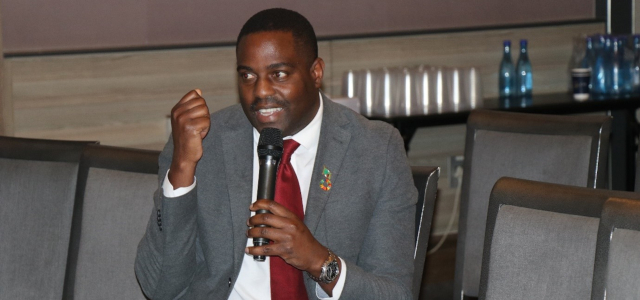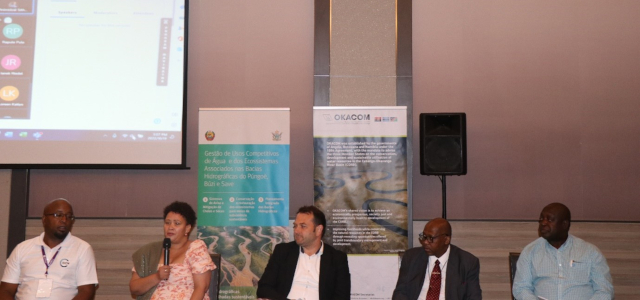“Shared watercourses are central to livelihoods and socio-economic development within the region; however, management of these watercourses remains a challenge”, said Dr. Patrice Kabeya, Senior Programmes Officer for the SADC Water Division. “The SADC revised Protocol on Shared Watercourses of August 2000 is one of the various instruments that the SADC Secretariat has developed to foster closer cooperation among Member States for the protection, management, and use of shared watercourses in the region”.
The Protocol advocates for the promotion and facilitation of the establishment of shared watercourse agreements and institutions for effective management of the water resources. Over the last two decades, SADC has facilitated the establishment of several river basin organisations (RBOs), whose main role is to ensure coordinated and sustainable management of shared watercourses within the SADC region. This is executed through institutional arrangements, regional and national policy frameworks, and instruments and tools that guide management decision making.
RBOs in the region are faced with many challenges including high levels of poverty among populations living within river basins, environmental degradation, weak institutions, poor governance, inadequate financial resources to implement decisions and strategic programmes, and a lack of financial sustainability.
Reflecting on the issue of sustainability of RBOs, Mr. Alex Simalabwi, GWPSA’s Executive Secretary and Head of GWP Africa Coordination, reiterated the need to be innovative in financial sustainability for the effective execution of their mandates.

“The issue of sustainability of RBOs has dominated several global, continental, and regional fora”, Mr. Alex Simalabwi, GWPSA Executive Secretary and Head of Africa Coordination
“RBOs within the region need to develop short-term and long-term interventions to collectively attain financial sustainability with the support of the relevant SADC structures and SADC partners”, he said. “SADC RBOS need to emulate international models used for resource mobilisation to augment the financial support from their Member State Governments.
The Global Water Partnership Southern Africa (GWPSA) continues to support the implementation of the SADC-GIZ Transboundary Water Management in SADC (GIZ-TWM) Programme on behalf of the SADC Secretariat. The project is funded by the German Federal Ministry for Economic Cooperation and Development (BMZ) and the European Union and is implemented by The Deutsche Gesellschaft für Internationale Zusammenarbeit (GIZ) GmbH.
In giving his insights about RBO financing, Dr. Alexander Erich, GIZ-TWM Programme Manager, urged RBOs to desist relying largely on project funding from donors. He urged Member States to reflect on and clearly define RBOs mandate and capacitate them to be effective to gain trust.
Through the panel discussion composed of SADC, GIZ, the Permanent Okavango River Basin Water Commission (OKACOM), the International Union for Conservation of Nature (IUCN), the Orange-Senqu River Commission (ORASECOM), and the GEF-BuPuSa Transboundary Water Project, RBOs shared lessons learnt, success stories, challenges faced, and opportunities identified to address shared water course challenges in the SADC Region. The panel concurred that the lack of financial sustainability, together with poor governance, expertise drain, and lack of ownership by Member States, remain the challenges affecting RBOs in delivering their mandate.

The Panel, composed of Mr. Davison Saruchera, IUCN, Ms. Cynthia Ortmann, OKACOM Commissioner, Dr. Alexander Erich, GIZ, Mr. Phera Ramoeli, Executive Secretary of OKACOM, and GWPSA’s project manager for the GEF-funded BuPuSa Project, Mr. Elisha Madamombe, reflected on sustainable management of shared watercourses in the SADC Region
RBOs were urged to have full sight of all the multiple types of engagement platforms that are open to their Member States. A consensus was reached on the need for the creation of platforms for RBOs to share experiences regionally, continentally, and globally. The session concluded that there was need for innovation to ensure the financial sustainability of RBOs, and clarity on issues of their mandate.
The key outcomes from the session will inform initiatives on resource mobilisation for operational and financial sustainability for RBOs in the region.
Photo credit: Markus Pavlowsky/Getty Image
